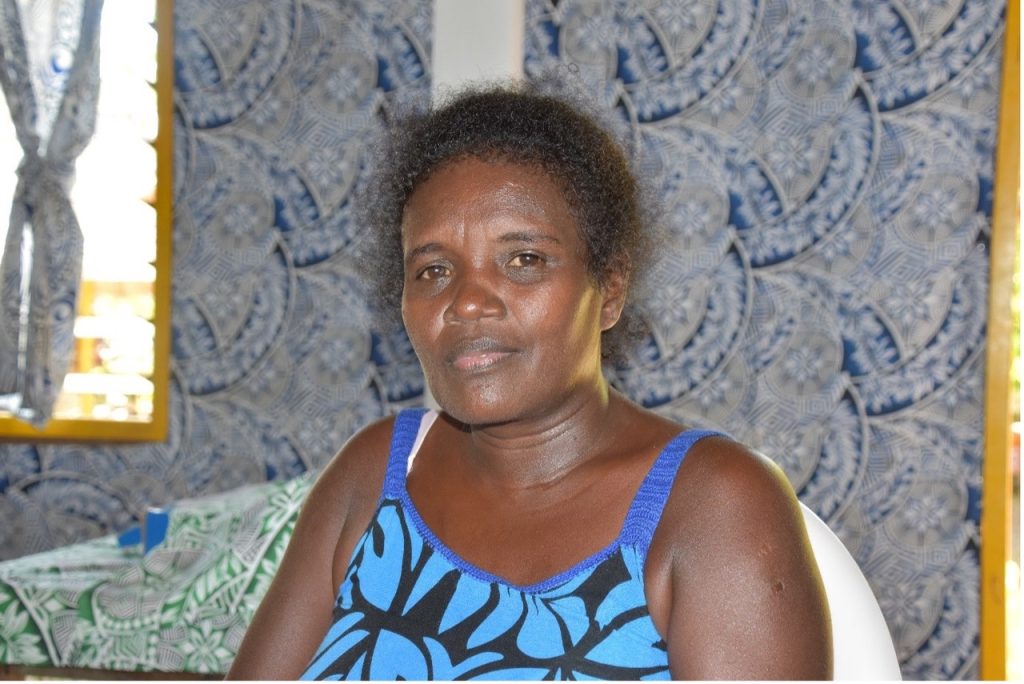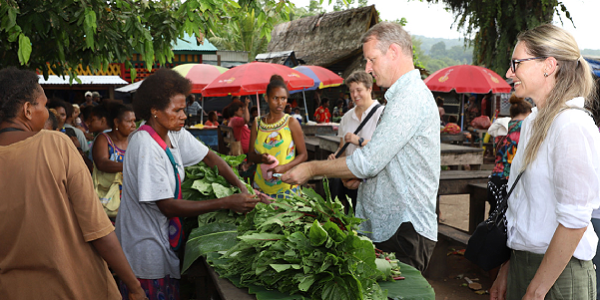LIFE is about to get a little easier for rural women like Seghe market vendor and mother of three, Nagarita Waelesi.
Ms Waelesi depends on her market income to send her children to school in Honiara – but the current market house is too small.
“The market does not fit all of us vendors”, she explains. “Some of us are forced to sell on the ground, and if it rains, I have to bring my own umbrella to sell under.”
There’s also no toilet or running water.
This year, Australia is marking International Day for Rural Women, 15 October, by announcing two more market redevelopments under its 10-year Solomon Islands Infrastructure Program partnership with the Solomon Islands Government.
A new market will be built at Seghe, Western Province, while the western end of the Honiara Central Market will be extended to provide all-weather cover for market sellers and shoppers alike.
Australian High Commissioner Rod Hilton said rural women make up a large portion of Solomon Islands agricultural workforce, and their contributions were essential, not only for food security but also for driving economic growth in rural areas.
“October 15th is a day that honours the vital role that rural women play in our global community,” he said.
“I’ve visited many markets around this beautiful country, and in each and every location women are working hard to earn money for their families and creating thriving local economies.”
“Rural markets are crucial for realising the economic potential of rural women, and are the backbone of many rural communities,” HC Hilton said.

On Tuesday an official party including the Prime Minister and Western Provincial Government officials will visit the proposed new Seghe Market site next to the wharf. The new climate resilient market will have space for over 100 vendors, with the design based on consultations with provincial government, vendors and local communities to ensure the space is accessible, functional and sustainable for all.
“Importantly, Australia’s focus on local jobs and inclusive infrastructure means we choose local labour, local companies and local resources wherever possible for construction. This doubles the impact of Australia’s infrastructure investments.”
Ms Waelesi says she sells cooked food and crops from her garden, as well as clothing she sews for students, and passengers on the ferries and cargo vessels that pass through.
“If a new market house is to be built here for us in Seghe, we’ll have more space so all of us can fit into the shelter and sell our produce, and have proper restrooms for men and women.”
– SIIP Program









